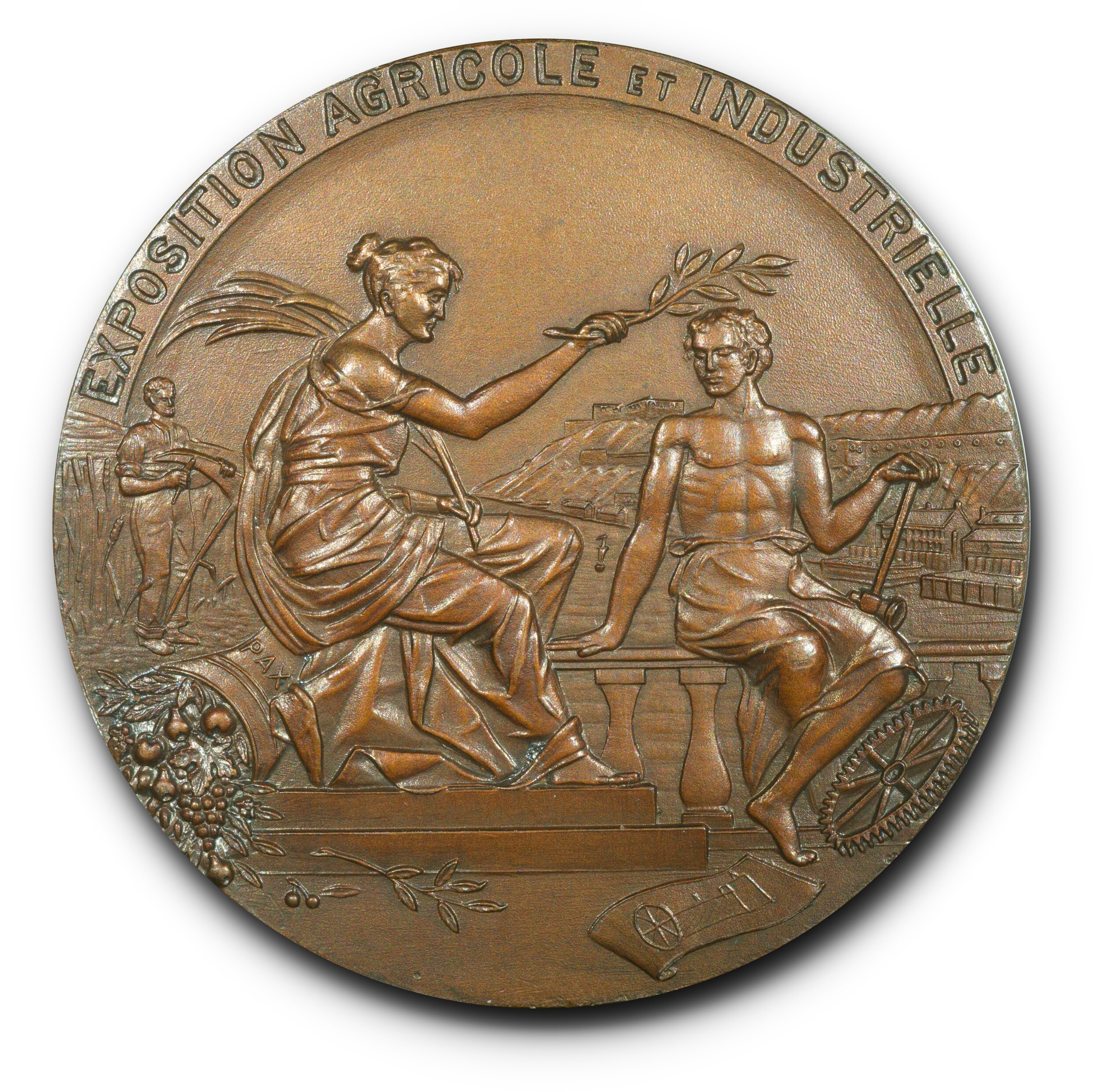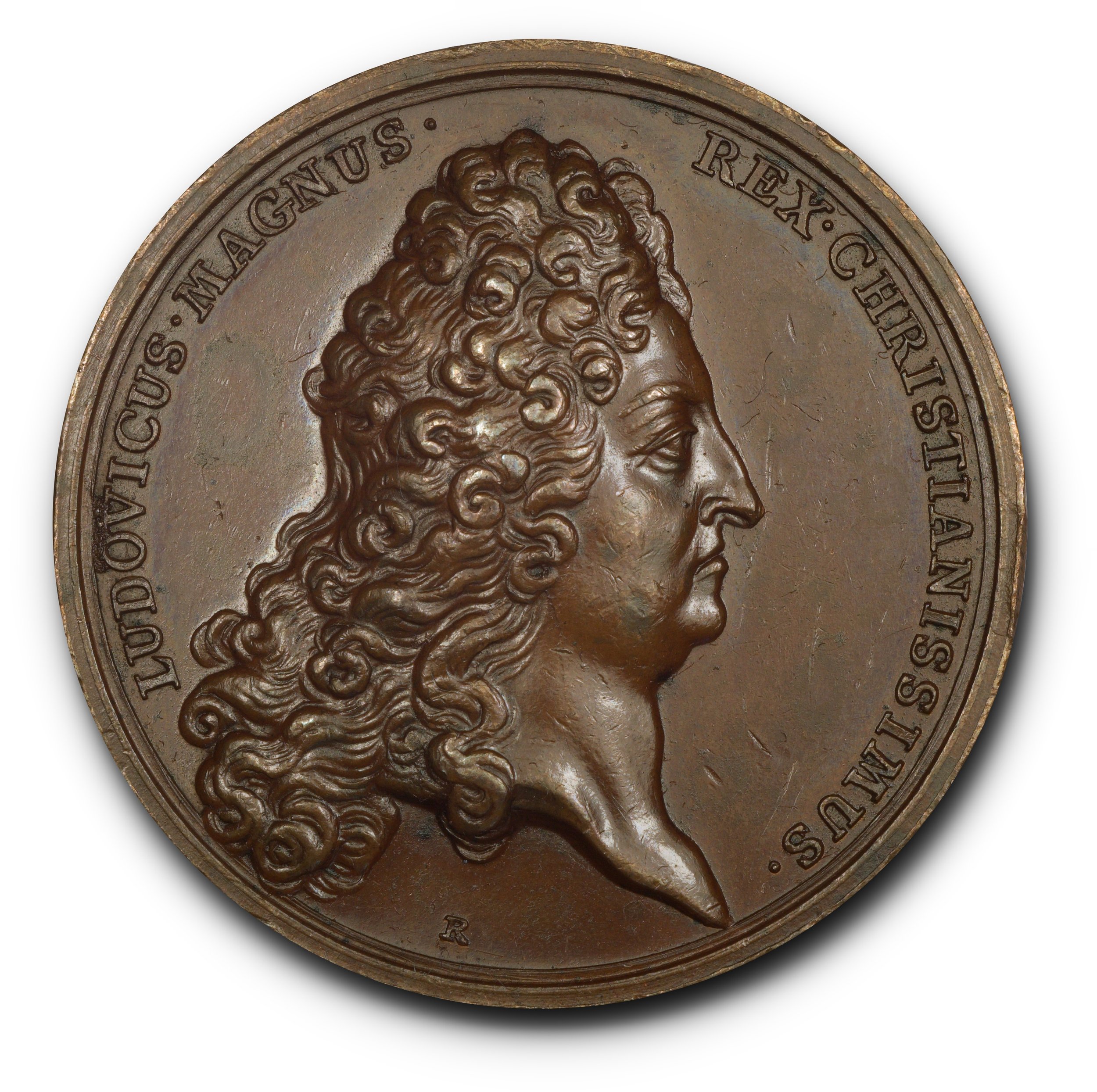1900 Thomas Scott Orange Hall Memorial (Winnipeg, Manitoba) Medal. Unc.



1900 Thomas Scott Orange Hall Memorial (Winnipeg, Manitoba) Medal. Unc.
Gilt Brass. 39mm. 25 grams. Thomas Scott was an Protestant Irish immigrant to western Canada. He served as a labourer at Red River and eventually got caught up in John Christian Schultz’s movement to annex the settlement to Canada during the late 1860s. According to the Dictionary of Canadian Biography:
By allying himself with Schultz’s group in the early winter of 1869–70, Scott may have found kindred spirits but he had chosen the losing side. Louis Riel and the Métis were in effective control of the settlement. An abortive resistance by the Canadian party resulted in the capture on 7 December of Schultz, Scott, Charles Mair, and 53 others and their incarceration in Upper Fort Garry. Scott was an unexceptional prisoner until the night of 9 Jan. 1870 when he, Mair, and several others managed to escape. Scott fled to the Canadian enclave at Portage la Prairie bearing lurid tales of the treatment meted out by his captors. During the next month he helped to organize a relief expedition of Canadians, ostensibly to secure the release of the remaining prisoners and with a secondary objective of attempting to capture Riel. The latter, meanwhile, had released all the prisoners, as he had promised Donald Alexander Smith, the emissary from Ottawa.
Scott and the Portage party descended on the Red River Settlement in mid February and tried to enlist the aid of the Kildonan settlers, but without success. Except for the irreconcilables among the Canadians, the people of Red River were prepared to allow Riel’s provisional government, which would be broadly representative, to effect a settlement with Ottawa. A conciliatory message from Riel to the Kildonan settlers ended the threat and the opposition melted away.
With little alternative but to return to Portage, Scott and his group decided on a last defiant gesture, to pass through Winnipeg under the very walls of Upper Fort Garry where Riel and his Métis followers were established. Unaware that the challenge to the provisional government had dissipated, Riel himself probably ordered the capture of the Portage group, which was accomplished without violence on 18 Feb. 1870. Thomas Scott and 47 others, including Major Charles Arkoll Boulton, their presumed leader, were confined in the fort. Almost immediately a Métis court martial decided to execute Boulton, but Riel was persuaded to spare his life in return for a promise from Smith that he would do all in his power to evoke support for the provisional government.
Outside the walls of Upper Fort Garry the emergency seemed to be over. But inside Thomas Scott was proving a difficult prisoner. Although the evidence is not completely conclusive, it seems clear that Scott did not disguise his contempt for the Métis. He so insulted and provoked his guards that on 28 February they dragged him outdoors and beat him. The incident marked a tragic turning point.
Though there was acquiescence, if not enthusiasm, among most of the inhabitants of Red River in allowing Riel and the incoming provisional government to negotiate entry into confederation with Ottawa, Riel’s leadership depended in the end on the continuing support of the armed Métis. After months of tension and threatened attack by the Canadian party, they were excitable and unruly. The reprieve of Boulton could be interpreted as magnanimity based on strength. To ignore Scott’s challenge might be seen as weakness. There was a growing spirit among the Métis that Scott must be punished. A Métis court martial, an ad hoc tribunal employed frequently on the prairie, met on the evening of 3 March; its members included Ambroise-Dydime and Jean-Baptiste Lépine, André Nault, and Elzéar Goulet. Scott was tried on the charge of insubordination. By majority vote the court martial convicted him and the death penalty was invoked. The following day he was shot by a Métis firing squad.
The three-storey building depicted on the reverse of this medal was erected in 1902 in downtown Winnipeg (216 Princess Street) in commemoration of Thomas Scott. It was occupied by the local Orangemen fraternal society, of which Scott was a member. The building was designed by local architect James McDiarmid. Fire damage resulted in its unfortunate demolition in February 2020.
This attractive example is profoundly prooflike with rich yellow-gold surfaces. There are a few superficial scratches on each side. Holed and looped, as issued.









